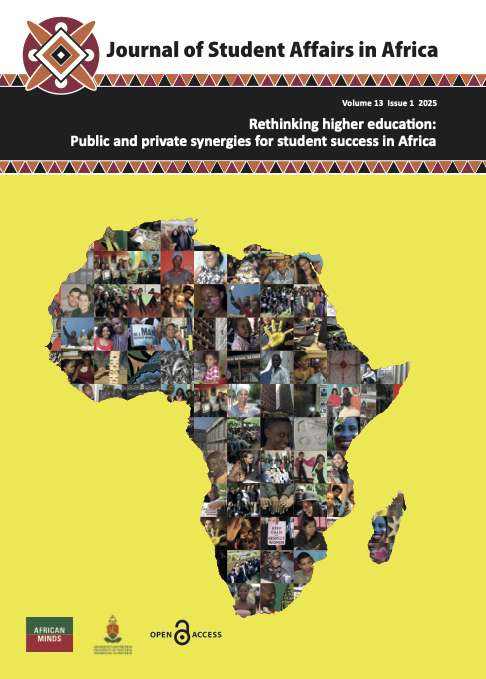Exploring character strengths among South African university students: Insights from a WhatsApp-based intervention
DOI:
https://doi.org/10.24085/jsaa.v13i1.5907Keywords:
Character strengths, Positive psychology, Student well-being, Higher education, university students, Strengths-based interventions, WhatsApp, Self-awareness, Personal development, South AfricaAbstract
Character strengths, such as resilience, justice, and appreciation of beauty, play a key role in student well-being and academic engagement. This study explores the strengths profiles of 302 students at a South African university and evaluates the effectiveness of a six-week WhatsApp-based intervention designed to enhance self-awareness and strengths application. Using the VIA Character Strengths Survey, we found Kindness, Love of Learning and Fairness were the most highly endorsed strengths, while Zest, Bravery and Self-regulation were lowest. Daily reflective prompts encouraged students to apply their strengths in different contexts. Post-intervention survey results from 55 participants indicated that most found the course beneficial for increasing self-awareness (90%) and understanding how to apply their character strengths in daily life (87%). Additionally, 93% of respondents reported that the daily messages helped them understand how to use their strengths to achieve their goals. Findings are discussed in relation to South Africa’s social and cultural landscape, highlighting the potential of low-cost, digital interventions to support student development. While limited to a single institution, this study suggests promise for culturally responsive, strengths-based courses in higher education.
Downloads
Published
Issue
Section
License
Copyright (c) 2025 Anita L. Campbell; Sean Paul Abrahams (Author)

This work is licensed under a Creative Commons Attribution-NonCommercial-ShareAlike 4.0 International License.
Authors who publish with this journal agree to the following terms:
Authors retain copyright and grant the journal right of first publication with the work simultaneously licensed under the Creative Commons Attribution Share-alike 4.0 International License that allows others to share the work with an acknowledgement of the work's authorship and initial publication in this journal.
Authors are able to enter into separate, additional contractual arrangements for the non-exclusive distribution of the journal's published version of the work (e.g., post it to an institutional repository or publish it in a book), with an acknowledgement of its initial publication in this journal.
Authors are permitted and encouraged to post their work online (e.g., in institutional repositories or on their website) prior to and during the submission process, as it can lead to productive exchanges, as well as earlier and greater citation of published work (See: The Effect of Open Access).


